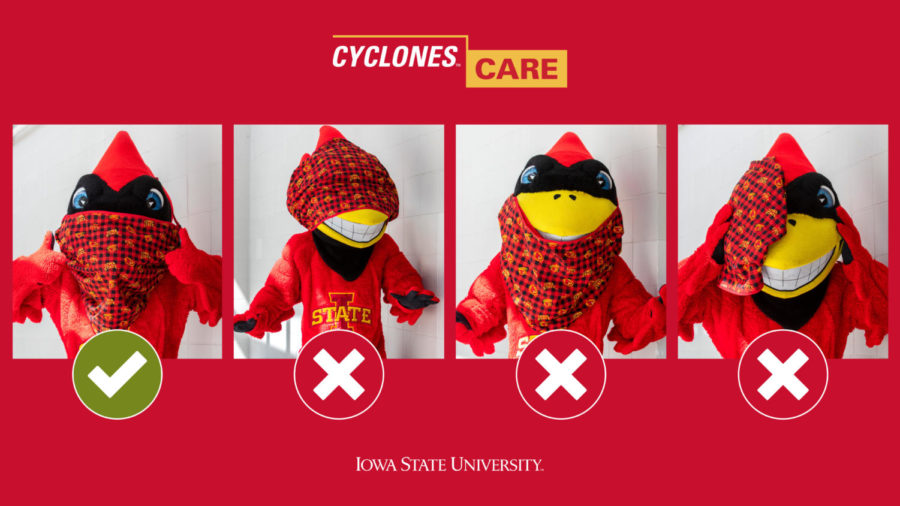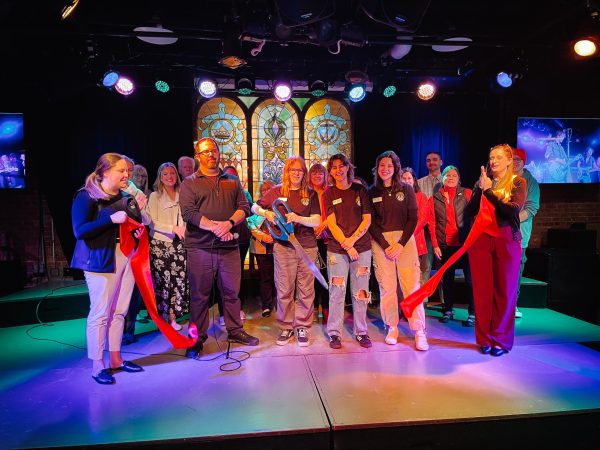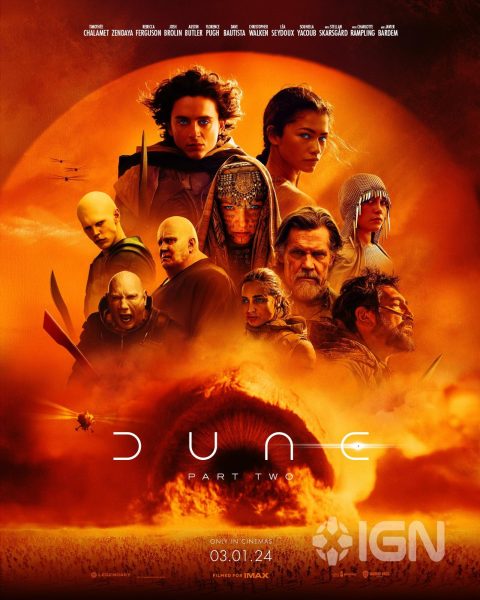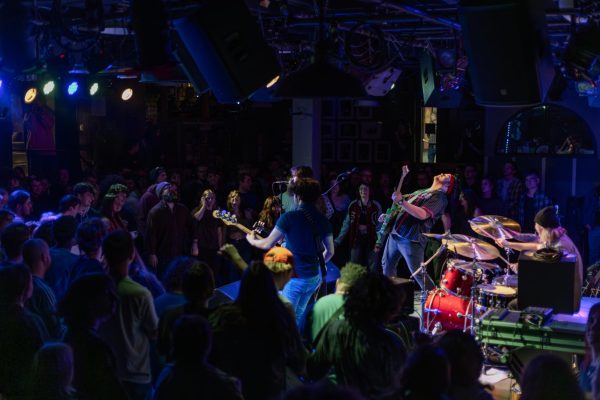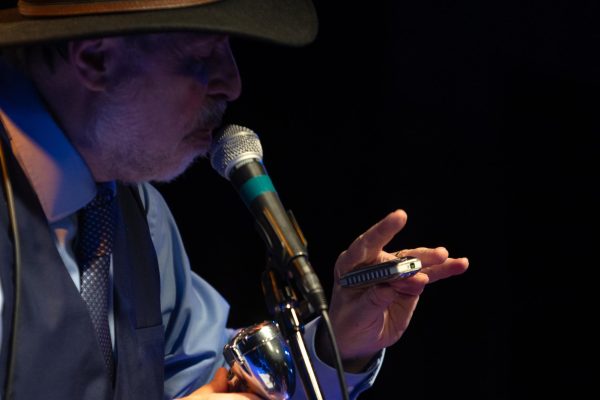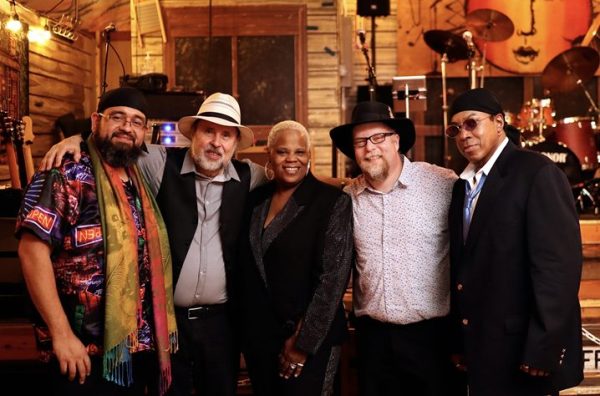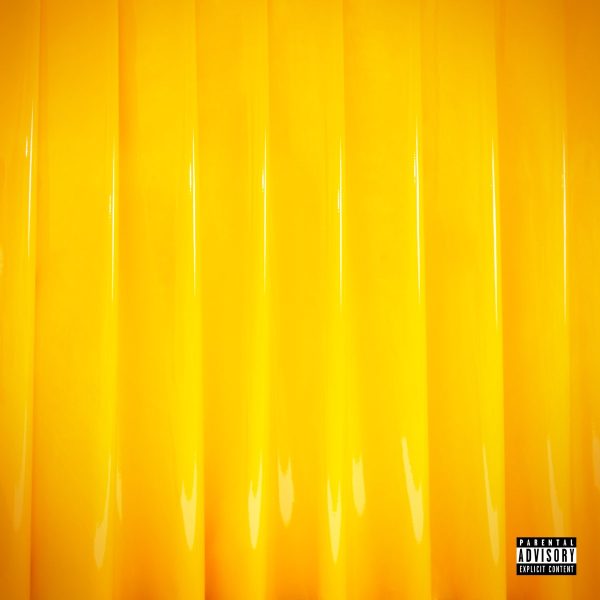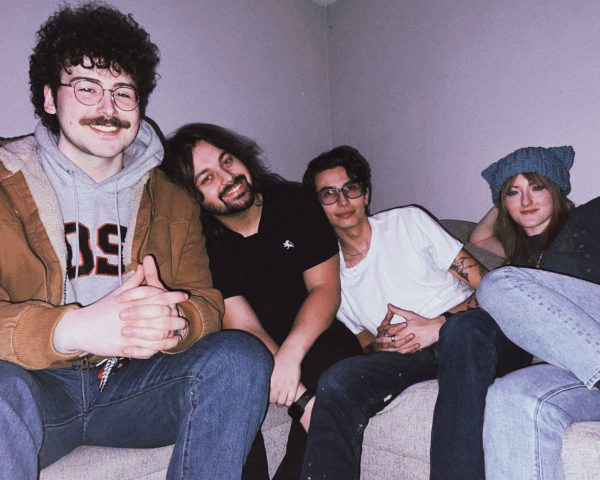Students uncertain about in-person campus events
September 5, 2020
The city of Ames, Iowa, claimed the number one spot on The New York Times COVID-19 tracker list for the highest number of new cases in the past two weeks as of Aug. 30.
This figure has raised concerns among Iowa State students about the future of events and clubs on campus.
A week before this occurrence, Iowa State President Wendy Wintersteen sent an email to the student body about COVID-19 safety policies for students attending social gatherings. But, despite the updated regulations, many students have doubts about whether the guidelines will be effective.
“It doesn’t make sense to me why they’re doing other events right now,” said David Nguyen, senior in biology, after experiencing how easy it is to catch COVID-19.
Nguyen is nearing the end of his quarantine after catching COVID-19 from a small club welcome meeting. He said he has experienced a range of symptoms, but the worst have been loss of appetite and tiredness. His symptoms have not only affected his well-being but also his school productivity.
Nguyen is a member of multiple clubs such as lacrosse and weightlifting club and has attended OpenLAN, an esports gaming tournament in the past.
Nguyen said he thinks Wintersteen’s guidelines are effective, but he does not believe large events should take place on campus.
“Relatively, this should work because those [guidelines] basically highlight the guidelines of the [Centers for Disease Control and Prevention],” Ngyuen said. “But the best way to prevent any virus from spreading is to not have anything that is causing the spread of the virus in the first place.”
Eric Samuka, an open-option freshman, said he had lost much of the excitement he had before attending Iowa State.
Before attending Iowa State, Samuka said he was most excited about his freshman orientation, but due to safety concerns, the freshman orientation switched to a virtual event. He said he finds it challenging to get involved on campus and does not feel as though he is getting a “real” freshman experience.
Samuka said he was also excited about networking opportunities and getting involved in clubs and events but has found it difficult due to safety concerns. He is trying to make the best of it by building relationships with the people around him, he said.
At this time, Samuka said he does not feel comfortable attending any school events, nor does he think the guidelines set in Wintersteen’s email are going to be effective.
Samuka said he has had first-hand experiences in the dining centers with how students do not listen to the widely recommended guidelines, like staying 6 feet apart and wearing a mask.
The rising COVID-19 cases in Ames have him and other freshmen concerned about being sent home, he said.
Iowa State junior in electrical engineering Connor Masi said he wished Wintersteen’s email had come before the annual “801 Day” celebrations and thinks the guidelines for attending future school-sponsored events will be ineffective.
“So far, those guidelines are not any different from what people are already recommended to do,” Masi said. “So I actually don’t think that it’s going to be very helpful.”
Masi also said he only feels comfortable attending small events on campus and does not believe large events should occur on campus for the safety of students.

